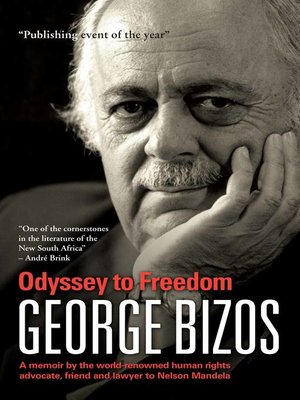
Sign up to save your library
With an OverDrive account, you can save your favorite libraries for at-a-glance information about availability. Find out more about OverDrive accounts.
Find this title in Libby, the library reading app by OverDrive.



Search for a digital library with this title
Title found at these libraries:
| Library Name | Distance |
|---|---|
| Loading... |
<p>In October 1941 a young boy and his father disembarked at Durban<br>harbour from a large liner commissioned into emergency service by<br>the Allies. They were Greek refugees from their German-occupied<br>motherland. They spoke no English. They had little money and no<br>prospects. They were heroes, but no one knew that.<br>Some months earlier, father and son, together with two other<br>Greek men and seven New Zealand soldiers, had set off in an open<br>boat in an attempt to escape the German invaders. For two days and<br>nights, sailing by instinct and the stars, battered by fierce winds,<br>their food stocks running low, their water bottles almost empty, they<br>ploughed across the Mediterranean towards Crete, little knowing<br>that the island was soon to capitulate to the Germans.<br>Fortunately the escapees sailed into an Allied fleet while it was still<br>light and were rescued. Had they encountered the fleet in darkness<br>their fate might have been dire, as, sometimes, in the horrors of war<br>no prisoners were taken – a reality the young boy discovered not<br>many nights later.<br>The boy who stood on the Durban docks, appalled at the sight<br>of Zulu men doing the work of animals by pulling rickshaws, would<br>become one of the leading human-rights lawyers in the country that<br>his father had chosen because the pavements were allegedly paved<br>with gold. The boy was George Bizos.<br>Today George Bizos is a legendary name, renowned throughout the<br>legal profession and beyond. More than that, he is a figure recognised<br>in townships across South Africa. For as an advocate, Bizos is<br>associated with the Treason Trial of the late 1950s; the subsequent<br>Rivonia Trial where his colleague, client and friend Nelson Mandela<br>was sentenced to life imprisonment; the trial of Bram Fischer; that of<br>the Namibian Toivo ja Toivo; a host of major human-rights trials through<br>the 1970s and 1980s right up to the amnesty hearings of the Truth and<br>Reconciliation Commission; and, in 2004, with the treason trial of the<br>Zimbabwean opposition leader, Morgan Tsvangirai, in that country. A consummate lawyer, a self-styled street fighter with a quiet tone of<br>voice and a beguiling smile who, in cross examination, would slice<br>through the evidence of security police and apartheid apologists<br>alike, Bizos haunted the courtrooms of the apartheid regime. For<br>four decades he exposed State lies and hypocrisy, State brutality<br>and murder. In response the State badgered and threatened him,<br>bugged his phone, obstructed his hearings. But the advocate was<br>not to be intimidated.<br>In this compelling and long-awaited autobiography, George Bizos<br>reveals the drama, the heartache and the moments of triumph, the<br>fears and the frustrations of his long career as an advocate. He writes,<br>moreover, about himself and his family, and the domestic moments<br>that made bearable the brutal years. He revels in his return to his<br>beloved Greece, his joy at the Athens Olympic Games and his love of<br>modern Greek poetry.<br>Above all, his is a warm and compassionate account, related by<br>a raconteur of note. It is history told from the inside.</p>






